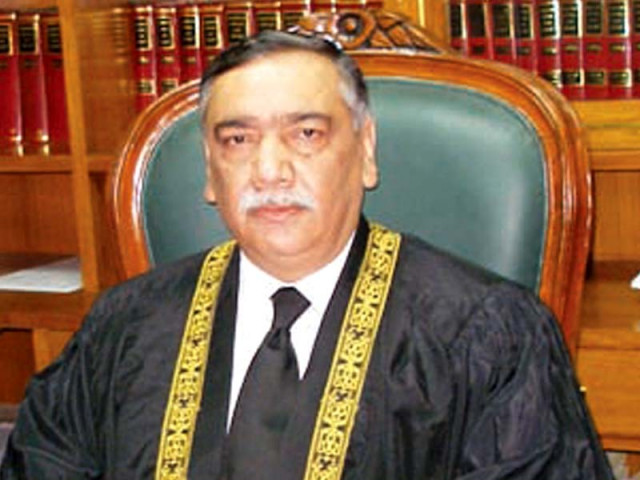Justice Khosa recuses himself from SJC proceedings
Informs CJP that he will not be part of the council hearing case against an LHC judge

Justice Asif Saeed Khosa.
According to sources, Justice Khosa has informed the SJC chairman – Chief Justice of Pakistan Mian Saqib Nisar – in writing that he cannot be part of the five-judge council.
On May 18, Khawaja Haris, counsel for the LHC judge, appeared before the SJC and raised objections to the presence of Justice Khosa in the council, arguing that the senior judge had authored the judgment on the basis of which the misconduct proceedings were initiated.
SJC dismisses IHC judge's plea for open trial
The apex court’s three-judge bench, head by Justice Khosa and comprising Justice Ijaz Ahmed Chaudhry and Justice Gulzar Ahmed, had dismissed the petition of LHC’s Justice Sayyed Mazahar Ali Akbar Naqvi for the expunction of some of the court’s observations concerning him in a bail matter.
On January 3, 2013, the court set aside the LHC’s order to grant bail to an accused, Nazir Ahmad, and observed that “discretion exercised by the learned judge while passing the impugned order in the instant case has appeared to us to be somewhat colourable”.
The court had noted that the judgment appeared colourable as “after dismissal of second application for suspension of sentence bearing the same ground the only difference in the respondent’s third application for the same relief was a different learned counsel for that respondent”.
Alleged misconduct: SJC reviews complaints against three judges
Later, the SJC initiated proceedings against the LHC judge on the basis of the judgment during the tenure of former chief justice Anwar Zaheer Jamali and served him a show cause notice. The LHC judge first challenged the show-cause notice before the apex court but later withdrew his petition.



















COMMENTS
Comments are moderated and generally will be posted if they are on-topic and not abusive.
For more information, please see our Comments FAQ